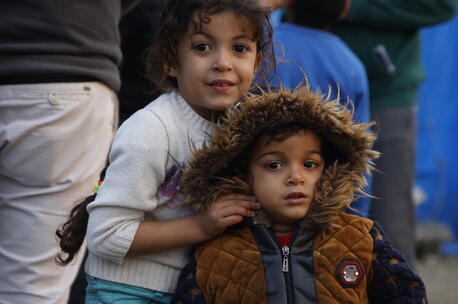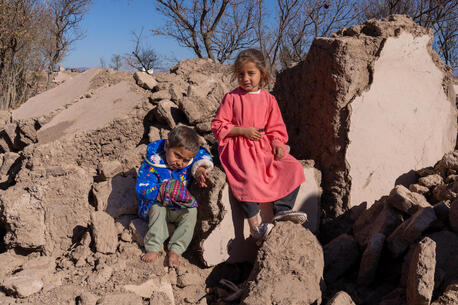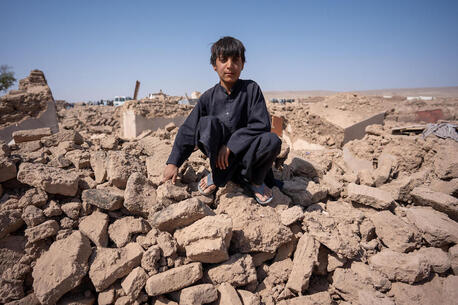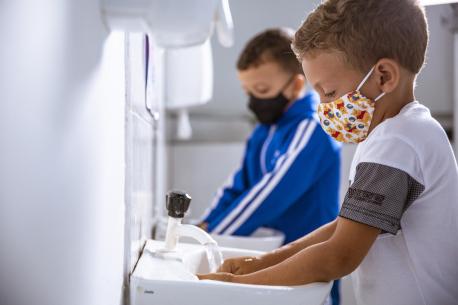
The Philoptochos Society Supporting COVID-19 & Earthquake Response
The Greek Orthodox Ladies Philoptochos Society joins UNICEF USA’s interfaith movement to End the Pandemic and UNICEF Haiti’s earthquake response.
Brazil
On April 30, 2021, Brazil passed the mark of 400,000 deaths due to the COVID-19 pandemic. The month of April was the deadliest since the first case was recorded on February 27, 2020. Approximately 82,000 people died within 30 days.
After the first case of COVID-19 was confirmed in Brazil in 2020, UNICEF initiated an emergency response focusing on infection prevention and control (IPC) measures, risk communication and community engagement (RCCE) and support for the continuity of basic services in Brazil’s most vulnerable and underserved communities.
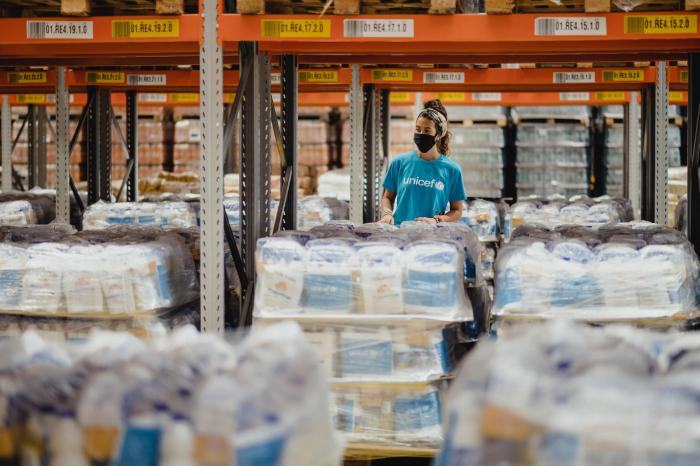
On 22 June 2020, Ludmila Balanin, UNICEF Marketing Services UNV, is pictured at UNICEF's warehouse in São Paulo, Brazil, where hygiene supplies kits and food baskets are assembled and distributed in response to the COVID-19 pandemic. © UNICEF/UNI348455/Cézar
In the initial phase, UNICEF launched and delivered a large-scale operation to support the most affected vulnerable populations with critical supplies and services. UNICEF reached 2.1 million people, including vulnerable populations in large cities and over 170,000 indigenous people across 30 remote territories in the Amazon region, with lifesaving water, sanitation and hygiene (WASH) supplies and communication on prevention measures.
In 2021, with Brazil suffering from a deadly severe second wave of infections, UNICEF is focusing on the following three humanitarian priorities, while continuing to mitigate the secondary impacts of the pandemic on Brazil’s most vulnerable children and adolescents:
Reduce transmission and provide direct assistance to an overstretched healthy system focusing on key hotspot communities
Advocacy and technical assistance for the safe reopening of schools to reduce and mitigate the impact of prolonged closures on a whole generation
Continued attention to the Venezuela migration crisis in the north of the country, providing direct assistance to children and adolescents on the move, particularly in the state of Roraima, as well as in the municipalities of Manaus, Santarem and Belem
Mitigating the impact of the pandemic on children and adolescents through large scale strategies
Haiti
Nearly four months after a 7.2 magnitude earthquake rocked south-western Haiti on 14 August 2021, severely impacting the South, Nippes and Grand’Anse departments, humanitarian and early recovery needs remain immediate and pressing. Latest figures show that at least 800,000 people –about 40% of the population of the three affected departments, including 340,000 children, have been affected by the earthquake, which left more than 2,246 deaths and more than 12,763 people injured.
According to the initial damage assessment conducted by the National Water and Sanitation Directorate (DINEPA), with UNICEF support, 56 water supply piped systems out of 212 (25,7%) were reported severely or moderately damaged with 212,000 people loosing durable access to drinking water due to damages.
In total, 500,000 people remain in need of WASH (Water, sanitation & hygiene) support, including emergency water supply, repairs and rehabilitation, hygiene promotion and sanitation.
As part of its response strategy, from the earliest days of the earthquake, UNICEF supports DINEPA and sector partners for emergency water supply services delivery as first response, through the installation of water treatment units, bladders and water trucking, and through the distribution of household water treatment products and hygiene kits. The response also includes repairs and rehabilitation of water and sanitation supplies in communities and institutions, emergency sanitation services to displaced populations, with gender and disability considerations, and hand washing facilities, hygiene promotion and hygiene supplies distribution including soap, water treatment products and menstrual hygiene products. UNICEF and the WASH sector response is focused on the prevention of public health risks including the spread of infectious diseases such as diarrhea, other waterborne diseases, malaria and COVID-19.
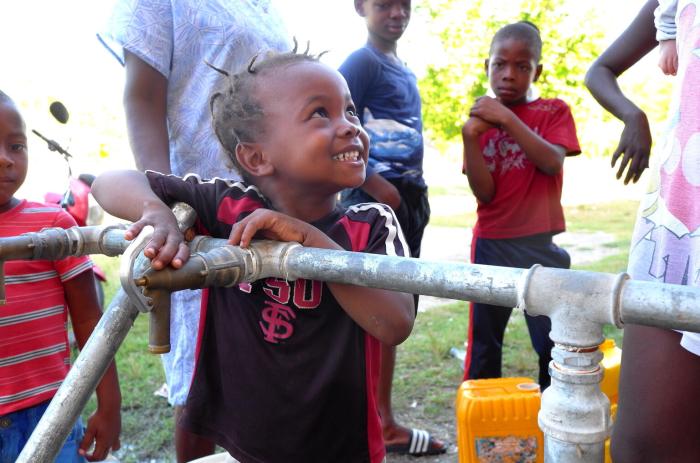
Les Cayes, Haiti. UNICEF facilitated the transportation of water treatment plants and the installation of 11 water treatment plants and 51 bladders with total volume of 415,000 litres, as well as the provision of fuel for water trucking. Support to DINEPA and sector partners to reach over 250,000 affected people with 1,972,386 litres of safe drinking water with water-trucking. © UNICEF/UN0521189/Ergen
While Brazil and Haiti continue to experience hardship, UNICEF USA is grateful for the $47,000 donation from the Greek Orthodox Ladies Philoptochos Society.
Collective impact for children is only possible through support from organizations like the Greek Orthodox Ladies Philoptochos Society, who share UNICEF USA’s mission to reach the most vulnerable children. Since 2000, the Philoptochos Society has supported a wide variety of UNICEF programs such as maternal and neonatal tetanus (MNT) eradication to ending child trafficking here at home. UNICEF USA thanks the Philoptochos Society for its historic commitment.
If you are interested in learning more about getting involved with UNICEF USA, please contact:
Alex Uzarowicz
Manager, Global Cause Partnerships
auzarowicz@unicefusa.org
(312) 224-4797
